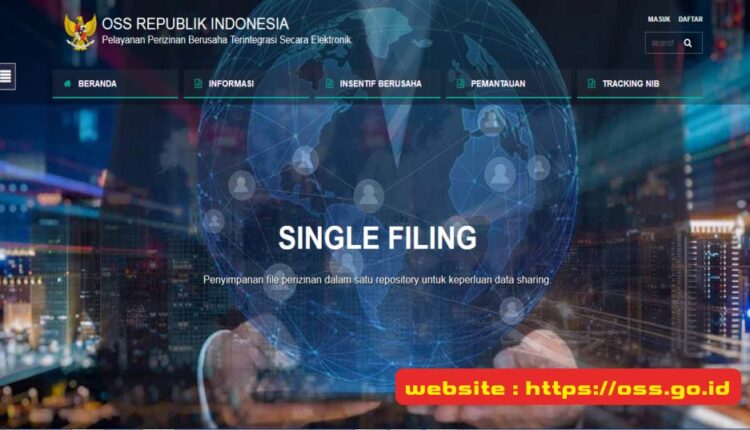OSS System Increases Foreign Direct Investment Realization
By: Alfisyah Dianasari )*
The investment climate in Indonesia needs to be maintained so that it remains stable, the government also continues to strive to maintain the stability of the investment climate by inaugurating the Online Single Submission (OSS) Integrated Licensing System. This system allows business licenses to be obtained in a short time even less than 1 hour. This of course can attract investors to invest in Indonesia.
With an integrated system that offers all the information needed for business licensing, the whole process will be easier and faster. All licensing data in the regions can be accessed more quickly without having to go to the offices concerned.
To support the success of the OSS program, the government also sets strict rules, such as sanctions for local governments that do not implement this system. Of course, with the sanctions applied, this OSS can be implemented evenly throughout Indonesia so that potential investors can expand their business to various regions.
Investors will feel safe to invest in Indonesia, because each province has formed a task force to oversee all licensing processes so that the process remains transparent and does not harm the state or investors.
Expert staff for Macroeconomics at the Ministry of Investment / Investment Coordinating Board (BKPM) Indra Darmawan said the realization of foreign investment (PMA) and domestic investment (PMDN) in the last two years had almost balanced. Previously, the realization of PMA investment was always 65%-70% higher than that of PMDN. Indra assessed that this could not be separated from the implementation of OSS which was able to offer easy licensing for investors.
Increasing innovation and investment quality is the main capital in encouraging higher, sustainable and prosperous economic growth in a fair and equitable manner. Based on that understanding, the Ministry of Investment / BKPM is known to set two policy directions.
For each of these pillars, policy directions and strategies are set to optimize the achievement of investment realization targets, considering the increasing need for investment to achieve an average economic growth of 5.7-6.0 per year.
The first pillar is increasing innovation with the aim of achieving investment targets. According to the Ministry of Investment/BKPM, these efforts need to be carried out innovatively, both at the planning level, climate improvement, cooperation, promotion, service, controlling the implementation of investment, as well as internal governance.
The second pillar is increasing quality investment in an effort to encourage inclusive and sustainable economic growth achieved by encouraging increased investment in business sectors that absorb a lot of labor, increasing investment productivity, increasing investment that transfers knowledge and technology.
In addition, there is also an increase in competitiveness and market access, investment in export-oriented industries and import substitution industries, investment that is environmentally sound and has a large social impact, as well as optimizing the use of natural resources and domestic production.
Previously, President Joko Widodo said that risk-based OSS was the government’s way of breaking off face-to-face contact. Entrepreneurs do not need to register their type of business directly at the DPMPTSP (One Stop Service) Office.
Jokowi also emphasized the importance of transforming economic growth which has been dominated by consumption to shift towards downstreaming and production by encouraging the emergence of more new industries. For this reason, investment and exports are key.
The President also hopes that investment growth will be the main driver of national economic growth. This optimism is in line with the investment realization performance which grew significantly under the investment ministry.
This form of implementation includes, among others, a risk-based OSS system, as a strategy to improve the ease of doing business in order to increase the competitiveness of national investment.
)* The author is a contributor to the Press Circle and Cikini Students
